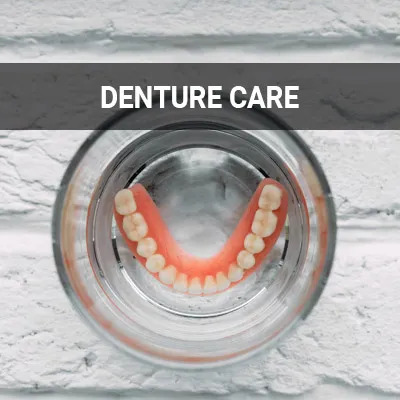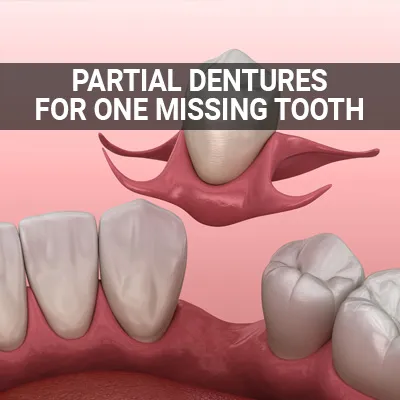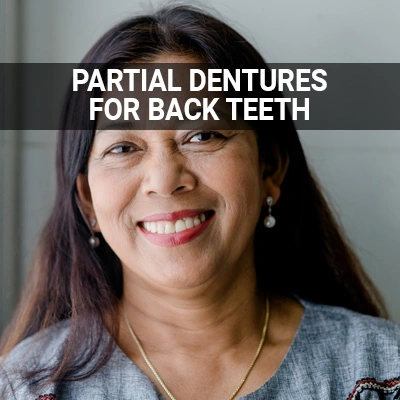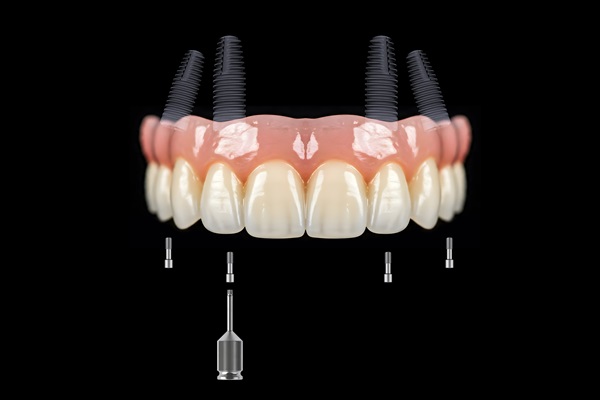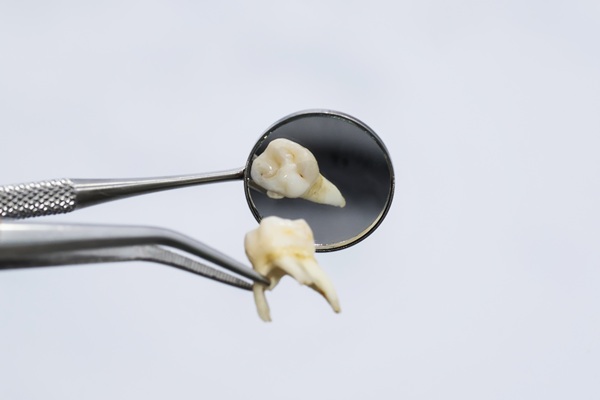Dentures and Partial Dentures Brooklyn, NY
Dentures and partial dentures are artificial teeth that can replace an entire row of teeth or all teeth in a mouth. No matter the reason for tooth loss in adults, we can use dentures to provide an effective and natural-looking replacement. With our dentures, you will be able to eat and speak as you usually would. We offer full and partial dentures customized to your needs.
Dentures and partial dentures are available at Nostrand Dental in Brooklyn and the surrounding area. Along with helping patients chew and speak without issue, dentures can also help create the appearance of a full smile again. With our help, you can obtain a set of functioning teeth and restore your smile.
Call us today at (718) 513-9685 and schedule a time to discuss replacing your teeth with dentures or partial dentures or learn more about our services.
Types of Dentures
As discussed in an article by the Oral Health Foundation, there are differences between full and partial dentures. Full dentures are a good option for patients with no remaining teeth or whose damaged teeth are beyond repair. Meanwhile, a partial appliance makes sense when the person still has some natural teeth remaining. At Nostrand Dental, we can fit patients with either one of these mouth appliances.
There are forms of permanent dentures as well, though these may not be as common as the removable type. Permanent dentures can be more secure and durable. With permanent dentures, we anchor this apparatus to the jaw with implants. People choose these dentures to help avoid the embarrassment of the appliance slipping out while the person speaks or eats. Dental professionals are the only ones who can remove permanent dentures.
At Norstrand Dental, we use a high quality Valplast nylon material or Thermoflex which is an acetal resin which allows your dentures to conform to the shape of your mouth for comfort and natural looking teeth.

Types of Dentures
As discussed in an article by the Oral Health Foundation, there are differences between full and partial dentures. Full dentures are a good option for patients with no remaining teeth or whose damaged teeth are beyond repair. Meanwhile, a partial appliance makes sense when the person still has some natural teeth remaining. At Nostrand Dental, we can fit patients with either one of these mouth appliances.
There are forms of permanent dentures as well, though these may not be as common as the removable type. Permanent dentures can be more secure and durable. With permanent dentures, we anchor this apparatus to the jaw with implants. People choose these dentures to help avoid the embarrassment of the appliance slipping out while the person speaks or eats. Dental professionals are the only ones who can remove permanent dentures.
At Norstrand Dental, we use a high quality Valplast nylon material or Thermoflex which is an acetal resin which allows your dentures to conform to the shape of your mouth for comfort and natural looking teeth.

“As discussed in an article by the Oral Health Foundation, there are differences between full and partial dentures.”
The Denture Process
Typically, the process starts with taking an impression of the mouth. From that, the dentist creates a model using dental stone as a cast. Our team may ask the patient to try several different sets of sterilized dentures to determine the ideal fit and the preferred color and size of teeth. After these selections, the dentist may make some adjustments to the cast. Then, it is sent to a dental laboratory for completion.
At the dental laboratory, technicians may create a wax version of the gum line. These technicians make the replacement teeth from a material that closely resembles real teeth known as resin. Virtually, all labs seek approval from the patient and dentist before proceeding with the finishing touches.
Following approval, the technician removes the wax and replaces it with acrylic. This looks far more realistic. This process entails boiling the wax out, drilling holes in the teeth, and injecting the acrylic. Finally, technicians clean up the teeth and polish the appliance. The entire process may require the patient to visit the dentist's office four to five times.
“Our team may ask the patient to try several different sets of sterilized dentures to determine the ideal fit as well as the preferred color and size of teeth.”
Types of Dentures
When considering dentures, patients can choose between full and partial dentures. In fact, over the past few years, dentists created hybrids with other dental treatments to provide patients with even more options. Here is a shortlist of denture options one can consider:
- Full Dentures
Most commonly used by seniors, these dentures replace a complete set of teeth. They sit directly on top of the gums. Some patients are good candidates for immediate placement. In this instance, the dentist places the previously made dentures immediately after the extraction of the teeth. For everyone else, the dentist may recommend waiting eight to 12 weeks after teeth removal.
- Partial Dentures
If the patient still has a number of healthy teeth left, the dentist may recommend partial dentures. This usually requires the use of a metal piece to which a pink-colored base is attached. The metal helps to anchor the false teeth to the natural teeth to prevent movement.
- Implant-Supported Dentures
This method blends dental implants with dentures. Instead of anchoring all the teeth in place individually, the dentist may add several dental implants that hold the full upper and/or lower set in place. Dentists may use this for partial dentures too. These dentures are not removable once in place. Please note that not all patients are good candidates for these.
- Overdentures or Snap-In Dentures
When patients prefer to retain the ability to remove dentures, but like the stability of implants, they may opt for overdentures. These are handy in instances where a person has no teeth, as the dental implants provide an anchor that the teeth can sit on. For even more excellent stability, patients may opt for snap-in dentures. In this case, the implants have locator receptors, and the dentures have attachments. These work together to snap the dentures into place for a snug fit.
The option a patient chooses will depend on that patient's unique situation and health. Our team is available to discuss all the options. We will help you determine the right one for you.
“In fact, over the past few years, dentists created hybrids with other dental treatments to provide patients with even more options.”
Check out what others are saying about our dental services on Yelp: Dentures and Partial Dentures in Brooklyn, NY
How to Care for Your Dentures
According to Mayo Clinic, both removable partial and full dentures require proper care to keep them clean, stain-free, and in generally optimal condition. For example, it is essential to remove and rinse dentures after eating (and brush the teeth after removing the dentures). Dentures should be rinsed thoroughly before put back in the mouth.
Patients must also treat dentures delicately, making sure not to bend or damage the plastic or clasps. Dentures should be brushed at least once daily and soaked overnight while not in use. Regular dental checkups can ensure a proper fit to prevent slippage and discomfort.
Denture Adhesives
Properly fitted and maintained dentures should sit comfortably on the teeth without requiring assistance. However, over time, patients may experience shrinkage in the bone structure in the mouth that causes dentures to shift and gradually become loose. Patients should then have the dentures relined or get fitted for new dentures. In the meantime, denture adhesives can help keep the dentures in place.
“According to Mayo Clinic, both removable partial and full dentures require proper care to keep them clean, stain-free, and in generally optimal condition.”
Questions Answered on This Page
Q. What are the different types of dentures?
Q. What are the different types of dentures?
Q. What should I do if my dentures break?
People Also Ask
Q. How do removable partial dentures work?
Q. What are the pros and cons of partial dentures for one missing tooth?
Q. How should people take care of their new dentures?
Q. What should I do if my dentures start to feel uncomfortable?
Q. How should people take care of their dentures while traveling?
Q. Should someone get implants or partial dentures?
Common Myths and Misconceptions
One of the most common myths we hear about dentures is that once a patient gets their dentures created and placed, they are set for life. Dentures typically last for five to 10 years. Since this is a long time, patients may wonder how to know when they need new dentures. If the color has changed dramatically or there is physical damage, dentures may need replacement. A common telling sign is when they no longer fit securely.
Some people believe that if they remove all their teeth and get full dentures, they will never need to set foot in a dentist's office again.This is not true and regular dental visits are still necessary. Dentists are in the best position to tell patients whether or not they need to get their dentures repaired or replaced. In fact, the dentist may adjust dentures during annual or bi-annual visits to keep them fitting correctly. Dentists also pay keen attention to gum health especially if the patient smokes or suffers from an illness affecting the gums.
“Some people may also believe that if they remove all their teeth and get full dentures, they’ll never need to set foot in a dentist’s office again.”
Frequently Asked Questions
Q. How much do dentures cost? Can insurance cover part or all of the cost?
A. We can go over dental coverage for this treatment during a consultation appointment in our office. We will go over the replacement options with you and the types of insurance we accept. If you wish to know about your coverage, you will need to contact your insurance provider.
Q. Will dentures change the way I look?
A. Dentures may enhance your overall appearance. In addition to replacing any missing teeth and improving the smile, dentures can help stop the facial muscles from sagging.
Q. Will dentures change the way I speak?
A. It may take you some time to get accustomed to speaking with dentures. However, with enough time and practice, dentures will likely improve your speech.
Q. How do new dentures feel?
A. New dentures are likely to feel foreign and awkward in the mouth. However, any discomfort you may feel will subside with time.
Q. Does age affect my tooth replacement options?
A. Some people may think dentures are only for older patients. While it is true that this demographic frequently chooses this option, younger people can get them too. Most dental professionals will wait until a person is 18 to consider the treatment.
Q. What are denture adhesives, and are they safe to use?
A. Denture adhesives are any adhesives placed in or on dentures to assist them in staying in place. They typically come as pastes, powders, or adhesive pads. Some also contain zinc to enhance adhesion. In moderation, they are safe to use.
Denture Terminology
Book Your Appointment Today
Have you decided that dentures are right for you? If not, consider speaking with our team to see what your options are. For more information, call us at (718) 513-9685 to schedule an appointment with Nostrand Dental in Brooklyn today.
Helpful Related Links
- American Dental Association (ADA). Glossary of Dental Clinical Terms. 2024
- American Academy of Cosmetic Dentistry® (AACD). Home Page. 2024
- WebMD. WebMD’s Oral Care Guide. 2024
About our business, license, and website security
- Nostrand Dental was established in 1998.
- We accept the following payment methods: Cash, CareCredit, Check, Discover, MasterCard, and Visa
- We serve patients from the following counties: Kings County, New York County, Richmond County, Queens County, and Nassau County
- We serve patients from the following cities: Brooklyn, Manhattan, Queens, Staten Island, and Long Island
- NY (License #46702). View License Information and Specifics
- National Provider Identifier Database (1457434540). View NPI Registry Information
- Norton Safe Web. View Details
- Trend Micro Site Safety Center. View Details
Back to top of Dentures and Partial Dentures



